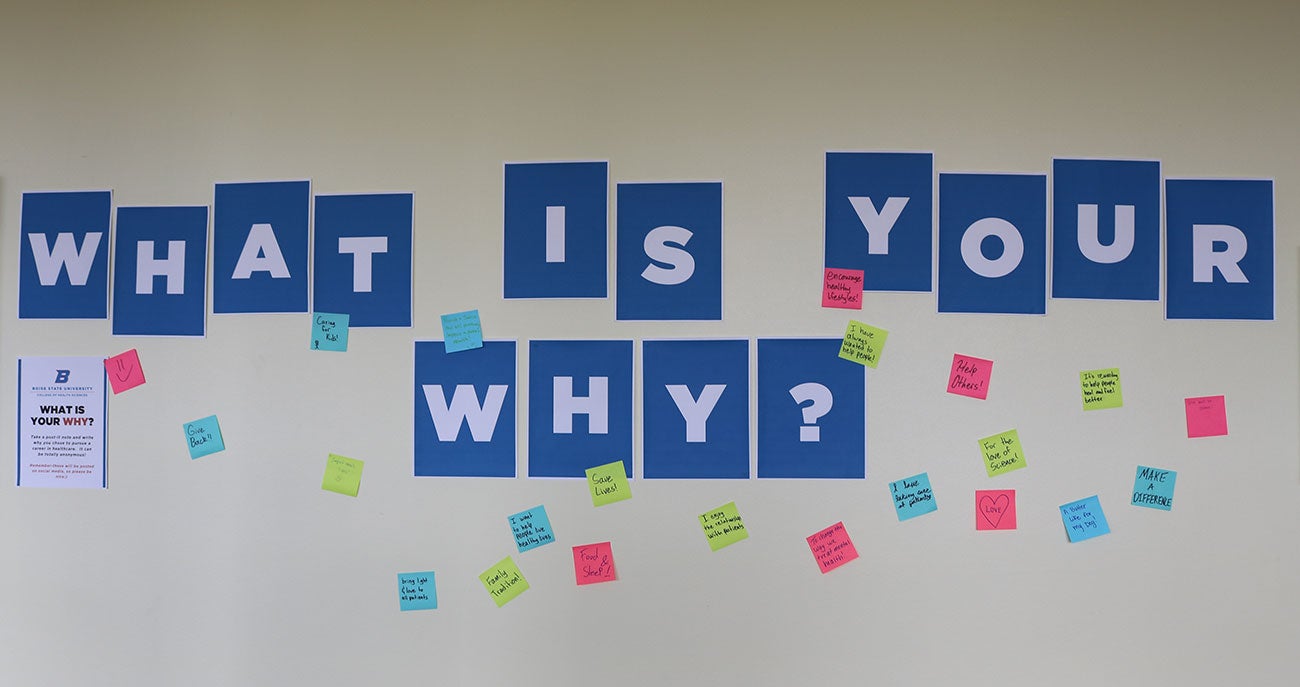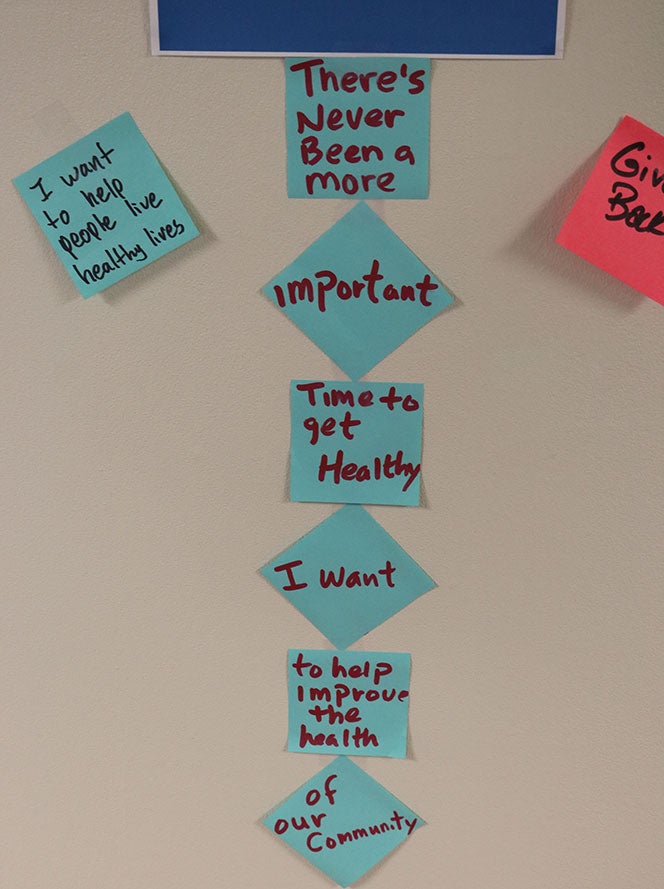
Hundreds of Boise State’s College of Health Sciences students are drawn to the university, and the college’s programs, out of the desire to help others.
But what, exactly, does that mean?
The answer, it turns out, is different for everyone.
On an evening in early November, students from across the college’s schools and programs gathered for a facilitated chance to think through exactly why they chose to pursue a healthcare field of study. The “Finding Your Passion in Healthcare” workshop was designed and delivered by students Sidney Stull, Hannah McNamee and Josh Bogdanowicz, all of whom are involved in communications with the college, for students taking classes in the college. It was an opportunity to think through just what it is about “helping” that is meaningful for them.
The event was a precursor to the much-anticipated February visit of Dr. Paul Farmer, the medical anthropologist and physician whose talk will be the first in the Carl and Jean Grosz Health Sciences Lecture series.
During the workshop, Erin Colburn, pre-professional health advising coordinator, Associate Dean Joelle Powers and Assistant Dean Lutana Haan talked about their own careers and how those paths had taken shape. And while the future can be clear for some – Paul Farmer among them – others might work their way toward their passions over time, often through trial and error.
As the student organizers noted, health care is a challenging field, so being clear on “why” someone is intent on carving a career in the profession is a valuable exercise – and more than 60 students and others associated with the college signed up to do just that.

Participants had the opportunity to consider Farmer’s thinking in the context of their own studies and goals – and the reasons students gave for pursuing careers in health care turned out to be as diverse as the fields represented.
Master’s-level students, those entering health care as a second career, participants in medical missions, nursing students, military veterans, health studies undergraduates, kinesiology and exercise science students, pre-med candidates and those who had yet to identify their fields of interest, all shared their outlooks on what constitutes helping for them.
For some, it was clinical care. For others, it was human potential. For yet others, it was movement and everyday activity.
Some expressed their belief that there is a spiritual component to helping others. For some, the concept of healing was involved. For many, the idea of listening was important.
Several participants perfectly summed up both the workshop and the value of the diverse range of motivations and outlooks, noting that there is always an opportunity to create a safe space for and to help another:
- “It’s relationships.”
- “It boils down to people.”
- “Every voice matters.”
Paul Farmer would be proud.